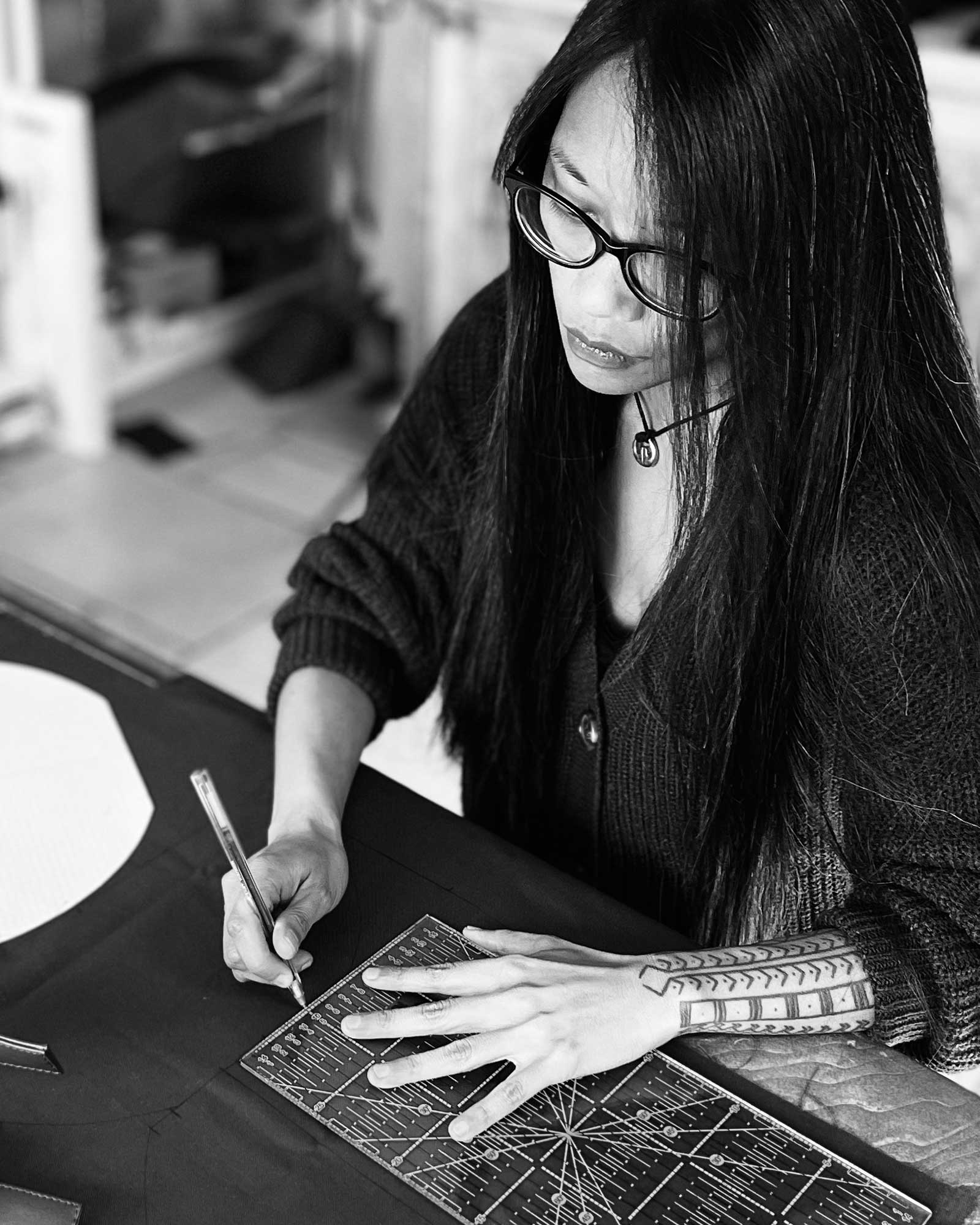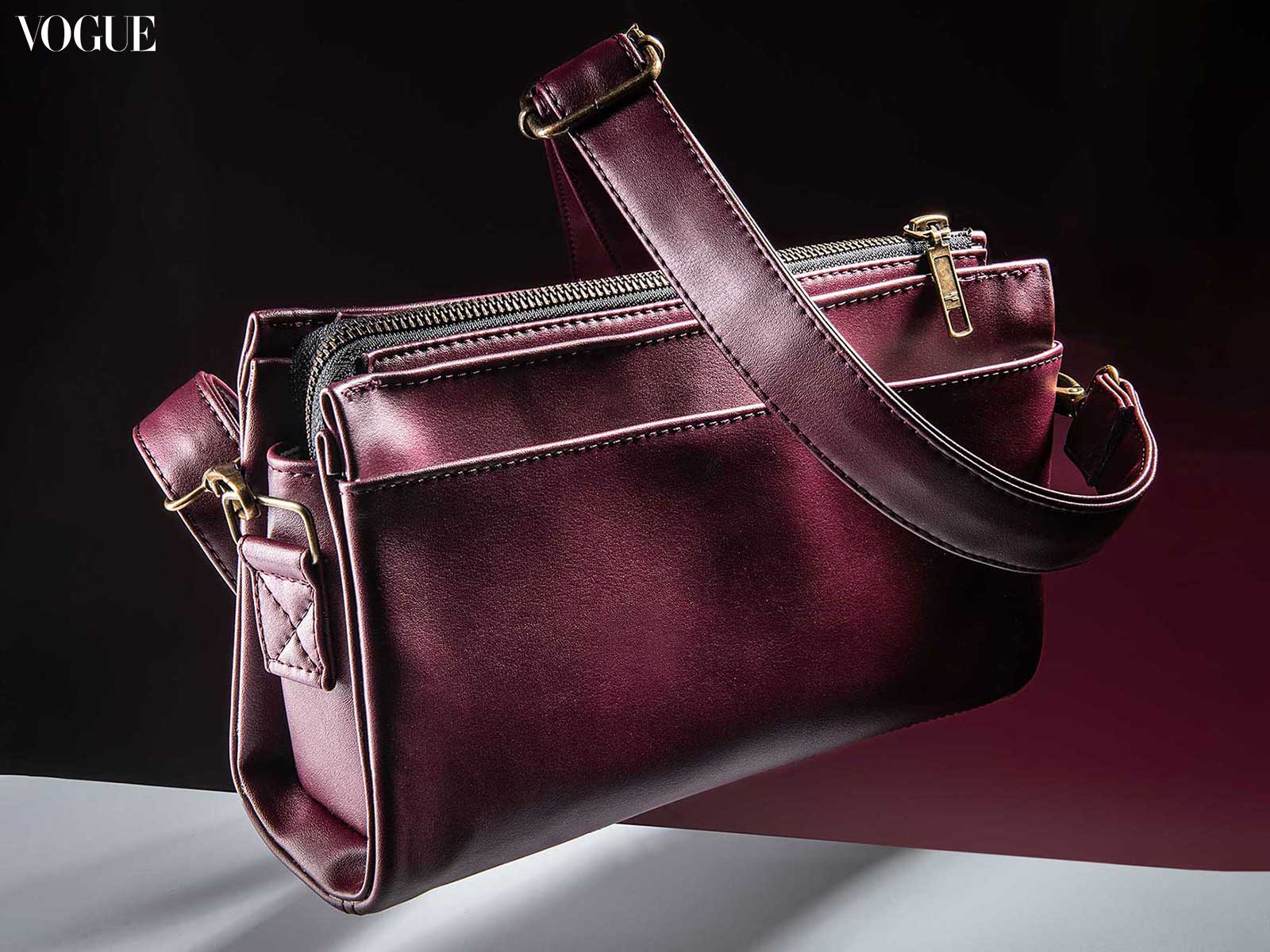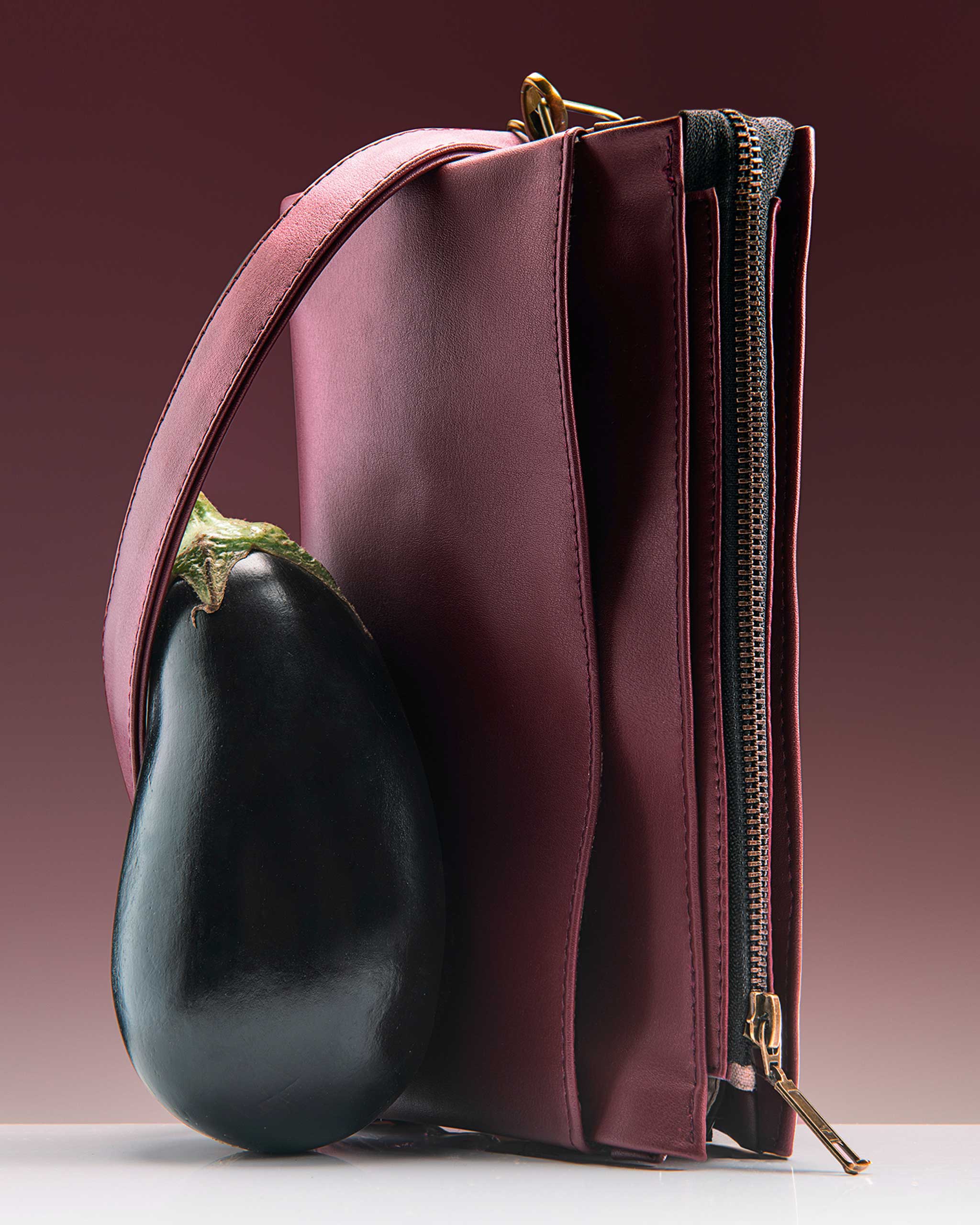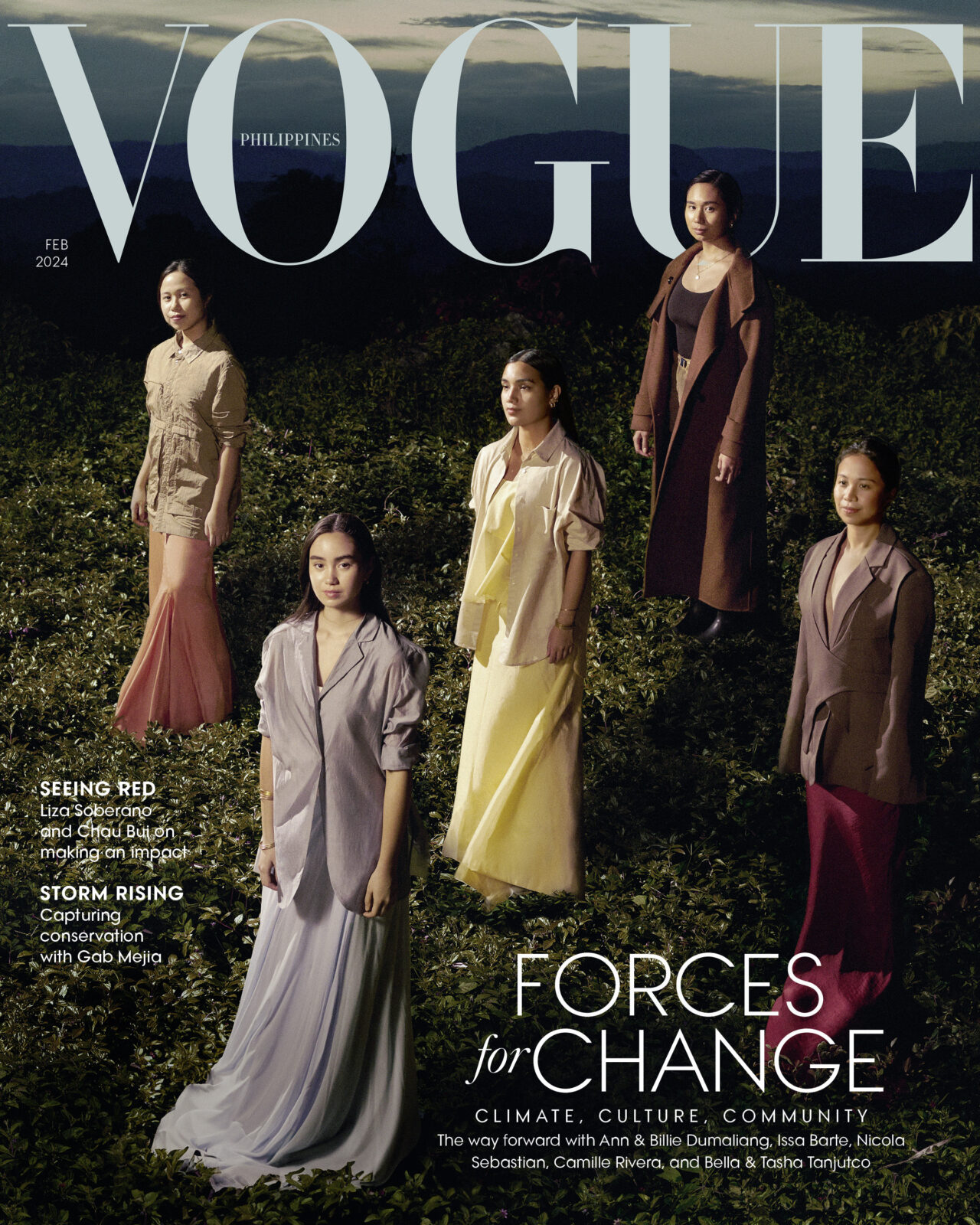Lubay is an alternative leather goods brand based on veganism, ethics, and eco-responsibility. Photo by Jonathan Steelandt
In Belgium, alternative leather brand Lubay fashions bags from leftover grape skins, stalks, and seeds.
Before Soho Francotte’s hands learned how to cut and sew, they were adjusting microphones, playing keyboards, and hitting the drums. “My [partner] sings and plays guitar [for our band Coffee Or Not],” the musician tells Vogue Philippines, “we work with loop stations. [We’re just] two people but we can sound like a full band.”
By 2020, the duo had been holding concerts and tours around Europe full time for over a decade, while on the side, Soho was a press officer and tour organizer who promoted other musical projects. When the pandemic hit, however, she was forced to reevaluate her career. Wishing to remain creative, she began designing initial bag prototypes before launching a crowdfunding campaign. From there, she created Lubay, her alternative leather goods brand based on veganism, ethics, and eco-responsibility.
As a vegan of 10 years, Soho has long been committed to the environment. It’s why, for Lubay, she turned to materials derived from nature. The designer started with Piñatex pineapple leather, made from fibers extracted from pineapple leaves. “But the main problem was that people were questioning the idea that the pineapple leaves came from the Philippines,” she shares. “Well, I come from the Philippines. But somehow it kind of was difficult with the idea of being a sustainable brand and using materials that come from so far away.”

So the Belgium-based designer looked closer. She eventually discovered Vegea, which is made from grape skins, stalks, and seeds that were left over from wine production. The leather was developed by Italian furniture designer Gianpiero Tessitore and industrial chemist Francesco Merlino from 2013 to 2016, when the former was unable to source a sustainable alternative to animal leather for his work. In 2017, their innovation won the H&M Foundation’s Change Maker Award, and since then, grape skin leather has been used by leading brands. Calvin Klein and Italian sportswear label Diadora crafted sneakers with the biomaterial, while Bentley used it to upholster the seats in one of their electric vehicle models.
Unlike these global companies that rely on production manpower, Lubay’s bags are designed and made by Soho herself. In commitment to slow and rigorous work, Soho holds an Artisanat Certifié or Certified Artisan certification from the Belgian government. When she applied for the certification two years ago, it was under the legal status of an entrepreneur with sole proprietorship, which means that Soho is a hundred percent in charge of the brand.
“The Belgian government needs to make sure that you don’t employ people to [do] the work for you,” she explains. “They will need to make sure that you made everything from A to Z. You really need to prove that you are behind every piece.”
When asked about the provenance of her brand’s name, Soho reveals that it was a suggestion from one of her aunts. Lubay means “a pair of earrings, traditional earrings with designs in Kalinga. And they say it’s not at all related to bags, but that it is a name with pure roots.”
Her own roots are in the north of the Philippines, but she only discovered that last year. Born in the Philippines and adopted in Belgium at the age of six months, Soho had never met her biological family nor ever been to her homeland. Her search for her parents’ identities began when she was a university student, one or two years shy from turning 20. “I think I managed to find my mother like five years ago, and my dad [a year] ago,” she recalls. “It’s such a long process, actually, because it’s not that easy when you are put in the orphanage.”

It was through her parents that Soho discovered her Kalinga heritage. It turns out, the inked markings running up and down her left arm were prophetic. “I made them before I knew it was Kalinga, it’s crazy,” she reveals, “it was, I don’t know, something kind of magical.” Describing herself as intuitively attracted to the culture and inspired by how Kalinga patterns hold great history and meaning, she took four traditional patterns and interpreted them her own way, then worked with a hand-poke artist to tap the tattoos into her skin.
But her appreciation for the Philippines isn’t skin deep. She promised herself that once she found her biological parents, she would step foot in her motherland for the first time. While that time has finally come (she planned to make the journey as early as May 2023), she has had to postpone.
It’s because of Lubay. She’s still the sole owner and employee to date, handling everything from design, production, press, social media, and e-commerce. She landed as a finalist for the Best Belgian Brand category at the Belgian Vegan Awards 2023, and she’s busy encouraging her followers to cast their votes. She’s launching a new design in a couple of days and her band is back on track too, with an album on the way. “If days might be 10 hours longer, that would be amazing,” Soho laughs. She continues to surprise clients, and herself, with the fact that her hands make all this possible.
“It’s because I’m a musician,” she says matter-of-factly. “I don’t like letting someone else [do it] because it would make me feel empty. If you create something in your head, you need to be able to make it happen in the physical world.”
- There’s No Such Thing As A Perfect Bag. So Dano Tingcungco Makes Bags That Are Perfect For What They’re Made For
- Nicolas Ghesquière Revisits His First Bag For Louis Vuitton
- Jane Birkin On The Hermès Birkin: How Fashion’s Most Iconic Handbag Was First Sketched On A Sickbag
- A Bag, A Bonnet, A Bouquet Wrap In One

